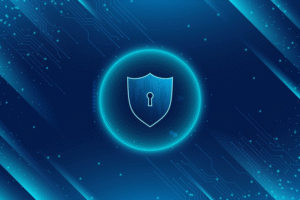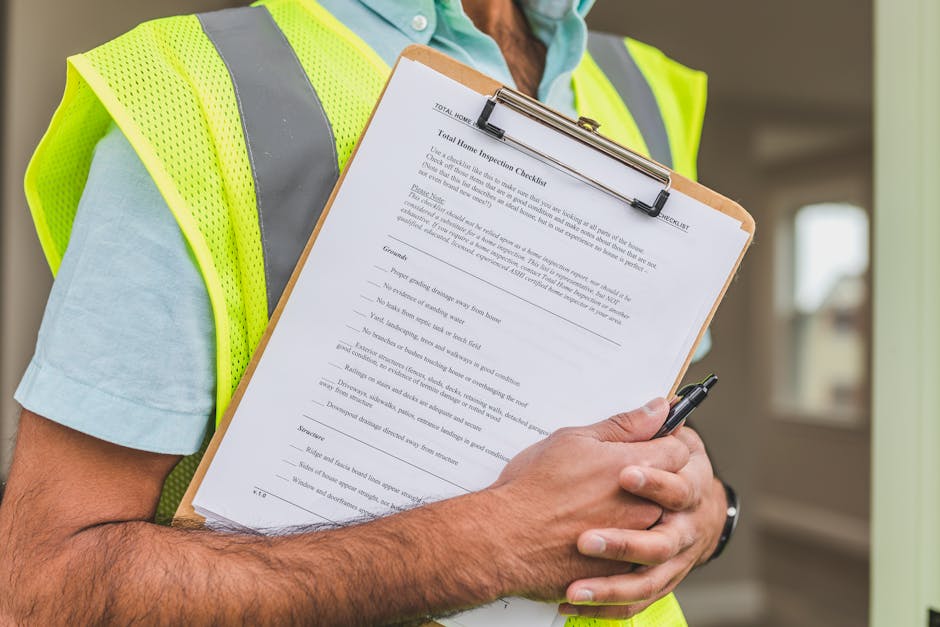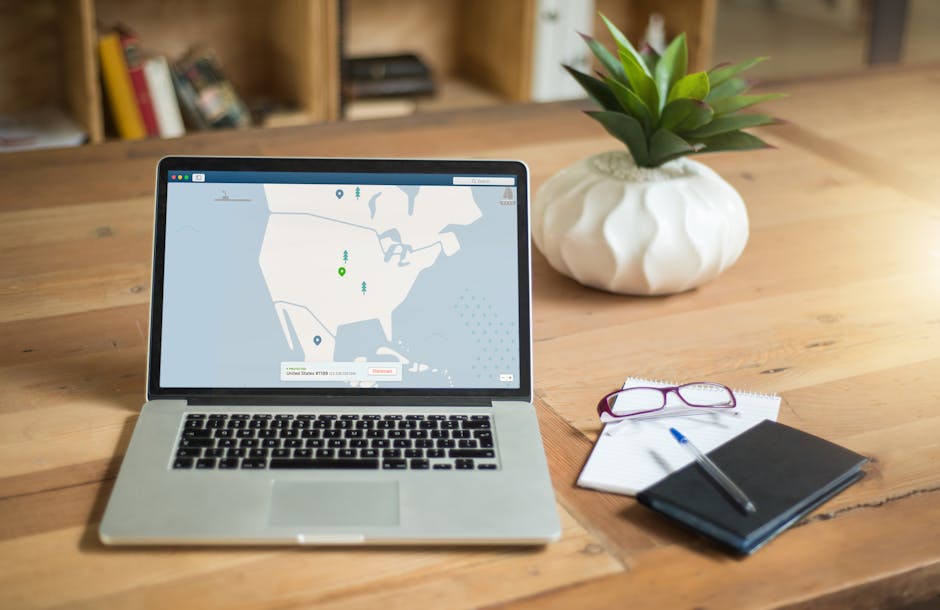are commercial vpn services secure vpns or trusted vpns classified 3 shocking risks in 2025
The Trust Gap in Commercial VPN Security
Are commercial vpn services secure vpns or trusted vpns classified according to consistent, verifiable standards? The short answer is no – there is no universal classification system that officially designates VPNs as “secure” or “trusted.” Instead, these terms are primarily marketing labels that require verification through independent research.
Here’s what you need to know about commercial VPN security:
| Classification | What It Means | Reality Check |
|---|---|---|
| “Secure VPN” | Claims to use strong encryption and security protocols | No standard definition; must verify encryption strength (AES-256 preferred) |
| “Trusted VPN” | Claims to maintain strong privacy practices and no-logs policies | Often unverified; look for independent audits and transparent privacy policies |
| Neither | Most commercial VPNs fall here | Security depends on provider practices, jurisdiction, and implementation |
Recent research reveals concerning gaps between marketing claims and reality in the commercial VPN industry. A study examining 200 VPN services found that 50 had no privacy policy online, 13 of 61 tested leaked user traffic, and 6 actively monitored user activities while claiming not to. Furthermore, 76% of network intrusions involved compromised user credentials, often through VPN access points.
While VPNs create encrypted tunnels between your device and their servers, this protection is only as strong as the provider’s security practices, encryption implementation, and privacy commitments.
“If you’re not paying for the product, you are the product,” applies especially to free VPNs, with 72% of free VPN providers including third-party tracking in their services.
Remote work increases cyberattack frequency by 238%, making secure connection solutions essential, but the TunnelVision attack recently demonstrated how most commercial VPNs remain vulnerable to man-in-the-middle attacks on public Wi-Fi.

Are Commercial VPN Services Secure VPNs or Trusted VPNs Classified
When you’re browsing VPN websites, you’ll notice terms like “secure VPN” and “trusted VPN” everywhere. But here’s the truth – these classifications aren’t based on any official standards. They’re just marketing terms that providers use to promote their services.
Commercial VPNs create encrypted tunnels for your internet traffic, but there’s no certification body that officially designates which ones are truly “secure” or “trusted.” Instead, providers apply these labels themselves based on whatever criteria they choose.
When a company claims to offer a “secure VPN,” they’re typically highlighting their encryption standards like AES-256 and features such as kill switches. When they advertise a “trusted VPN,” they’re usually suggesting they maintain strict no-logs policies and operate transparently.
It’s worth noting that over 46% of cyber breaches target smaller businesses with fewer than 1,000 employees – many of whom rely on VPNs without fully understanding their limitations. This knowledge gap makes it even more important to look beyond the marketing claims.
Are Commercial VPN Services Secure VPNs or Trusted VPNs Classified – Quick Definition
Let’s cut through the marketing speak and define what these terms should actually mean:
A “secure VPN” should implement strong encryption (ideally AES-256), use secure protocols like OpenVPN or WireGuard, and include features like kill switches to prevent data leaks if the connection drops. But remember – there’s no standardized definition for this term.
A “trusted VPN” should have verified no-logs policies, undergo regular independent security audits, and maintain transparent business practices. Again, there’s no official certification process that designates a VPN as truly “trusted.”
Most commercial VPNs slap these labels on their marketing materials without meeting rigorous standards. For example, many boast about offering “military-grade encryption” (usually meaning AES-256), but this is now an industry standard rather than something exceptional.
As one security researcher recently noted, “About a quarter of internet users use a VPN, but most lack the skills to verify the promised protections.” This knowledge gap allows VPN providers to make bold claims that often go unchallenged.
Are Commercial VPN Services Secure VPNs or Trusted VPNs Classified – Regulatory Angle
Where your VPN is headquartered matters enormously for your privacy. VPN providers based in countries that participate in intelligence-sharing alliances (known as the 5, 9, or 14 Eyes) may be legally required to share your data with authorities.
The Five Eyes alliance includes the US, UK, Canada, Australia, and New Zealand. The Nine Eyes adds Denmark, France, Netherlands, and Norway, while the Fourteen Eyes further includes Germany, Belgium, Italy, Sweden, and Spain.
VPNs operating in these jurisdictions may have to comply with data retention laws and Mutual Legal Assistance Treaties (MLATs) that can compromise your privacy. For instance, a US-based VPN could receive a warrant for user data accompanied by a gag order preventing them from telling you about it.
Some VPNs try to avoid these issues by incorporating in privacy-friendly jurisdictions like Panama or the British Virgin Islands. However, complex corporate structures can sometimes hide the actual jurisdiction under which a VPN operates.
The Center for Democracy & Technology notes that “Countries in the ‘5-9-14 Eyes’ intelligence alliances share surveillance data and affect user privacy,” making jurisdiction a critical factor when you’re evaluating how trustworthy a VPN actually is – regardless of what the marketing says.
How Commercial VPNs Work—And Where They Break

Ever wonder what’s actually happening when you click that “Connect” button on your VPN app? Let’s peek behind the digital curtain.
When you activate a VPN, it creates an encrypted tunnel between your device and the VPN server. Think of it like a private underground passage that shields your data from prying eyes as it travels across the internet. This protection relies heavily on tunneling protocols – the technological backbone of any VPN service.
OpenVPN has long been the gold standard in the industry. It’s open-source (meaning security experts worldwide can examine its code), highly configurable, and has weathered years of security scrutiny. Meanwhile, the newer kid on the block, WireGuard, has been turning heads with its remarkably streamlined code – just about 3,700 lines compared to OpenVPN’s 100,000+. This simplicity isn’t just neat; it makes security audits more thorough and vulnerabilities easier to spot.
But here’s where things get interesting (and a bit concerning): even these sophisticated protocols have their weak spots.
The recently finded TunnelVision attack revealed how most commercial VPNs can be compromised on public Wi-Fi. This clever attack essentially redirects your traffic through an attacker’s machine, completely undermining the protection you thought you had. It’s like having a secure underground tunnel that secretly has an exit halfway through that you didn’t know about.
While the Electronic Frontier Foundation notes that “Public Wi-Fi is a lot safer than you think” thanks to widespread HTTPS adoption, your VPN might still leave you vulnerable in ways you wouldn’t expect.
Credential theft remains a persistent threat, with 76% of network intrusions involving compromised passwords. Your VPN creates a secure tunnel, but it can’t stop you from accidentally handing over your login details to a convincing phishing site.
Misconfiguration issues are surprisingly common too. A properly functioning VPN should route all your traffic through its encrypted tunnel, but incorrect settings can lead to DNS leaks or IP address exposure – essentially revealing your browsing activity despite the VPN being active.
Perhaps most worrying is that 90% of SSL VPNs use outdated or insecure encryption, according to recent research. That’s like installing a state-of-the-art security door but leaving the key under the doormat.
Many VPNs offer split tunneling as a convenient feature, allowing some apps to bypass the VPN while others stay protected. It’s handy when you want to stream local content while accessing international sites, but it creates security gaps if not carefully configured.
As one cybersecurity expert aptly put it: “VPNs protect confidentiality rather than provide true anonymity, since the provider can still see user traffic.” This fundamental limitation means that trusting your VPN provider isn’t just important – it’s essential.
Your VPN’s kill switch is another critical feature – it automatically disconnects your internet if the VPN connection drops, preventing accidental exposure. But not all kill switches are created equal, and some fail to activate quickly enough to prevent data leaks.
Are commercial vpn services secure vpns or trusted vpns classified properly? Not really. And understanding these technical limitations helps explain why – the security of any VPN ultimately depends on both its technical implementation and the trustworthiness of its provider.
Security Features That Separate Secure vs Trusted VPNs
When you’re trying to figure out if a VPN deserves the “secure” or “trusted” label, it all comes down to specific technical features that truly make a difference. Let’s look at what actually matters beyond the marketing hype:

Strong encryption is your first line of defense. AES-256 encryption stands as the gold standard in the industry – it’s the same protection the U.S. government relies on for classified information. But here’s the thing many people don’t realize: even the strongest lock is useless if installed incorrectly. The Snowden revelations showed us that the NSA wasn’t breaking encryption directly; they were exploiting flaws in how it was implemented.
Another critical security feature is Perfect Forward Secrecy. This clever approach generates new encryption keys for each session, meaning that if someone somehow cracks today’s key, they still can’t open up your past conversations. Without this protection, a single security breach could expose months or even years of your online activity that you thought was safely encrypted.
I can’t stress enough how important Multi-Factor Authentication is for VPN security. Even if someone steals your password (which happens alarmingly often), MFA creates another barrier to keep them out. Given that stolen credentials are behind 76% of network breaches, this extra step makes a world of difference.
Your VPN might be encrypting your traffic perfectly, but if it’s leaking your real information through other channels, what’s the point? Robust leak protection for DNS requests, WebRTC connections, and IP addresses ensures your true location and browsing habits stay private.
Split tunneling is a bit of a double-edged sword. When done right, it lets you route only certain traffic through your VPN while other apps connect normally – great for balancing security and speed. But misconfigured split tunneling can create serious security gaps.
One of my favorite advanced security features is RAM-only servers. Unlike traditional servers that store data on hard drives, RAM-only servers hold everything in memory, which wipes clean with every reboot. This provides real, technical enforcement of no-logs policies rather than just taking the company’s word for it.
The differences between free and paid VPNs become crystal clear when looking at these features. Free services rarely deliver the full security package, with research showing a shocking 38% of free VPN apps containing malware and 72% embedding third-party tracking tools.
As our research confirms, “A VPN with AES-256 encryption is considered the industry standard for data protection and is trusted by security experts globally.” But remember – strong encryption alone doesn’t automatically make a VPN trustworthy. How they implement these security features and their overall business practices matter just as much, if not more.
When evaluating whether are commercial vpn services secure vpns or trusted vpns classified appropriately, these technical features provide concrete evidence beyond marketing claims. A truly secure VPN implements all these protections correctly, while a trusted VPN combines them with transparent business practices and verified privacy policies.
Hidden Risks: Logging, Jurisdiction & Vendor Practices
When you look beyond the technical aspects of VPNs, you’ll find that trustworthiness often hinges on what happens behind the scenes. This is where many commercial VPNs don’t quite live up to their glossy marketing promises.
No-logs claims sound reassuring, but what do they actually mean? There’s a world of difference between not logging the websites you visit (activity logs) and recording connection times and bandwidth usage (connection logs). Many providers conveniently blur these lines. In fact, a comprehensive study found that out of 200 VPN services examined, 50 didn’t even have a privacy policy, and 6 were actively monitoring user activities while boldly claiming they didn’t log anything!
“There is no industry standard for defining ‘logging,'” as the Center for Democracy & Technology points out. This creates a gray area that some providers exploit to appear more privacy-friendly than they truly are.
The most trustworthy VPNs publish regular transparency reports that detail government data requests and how they handled them. They also invest in third-party audits to verify their security and privacy claims. These audits aren’t cheap, which is why many providers skip them or only publish limited results. When a VPN proudly displays their audit results, that’s usually a good sign they have nothing to hide.
Ever noticed how nearly every VPN review site seems to rate most services 4+ stars? There’s a reason for that. Research uncovered that 24 out of 26 VPN review sites received payments for positive reviews. This affiliate bias creates a misleading landscape for consumers trying to make informed decisions. One site listed hundreds of VPNs with over 90% rated four stars or above—statistically impossible in any objective evaluation!
According to the VPN Security Guide from Palo Alto Networks, “VPNs are generally safe for transmitting data over the internet but aren’t 100% secure.” This understated warning highlights the gap between marketing promises and security realities.
Remember the old saying, “If you’re not paying for the product, you are the product”? This is particularly true for free VPNs, which often generate revenue by collecting and selling user data. This data monetization directly contradicts the privacy protection these services claim to provide. Even some paid services have been caught selling anonymized user data to third parties.
A provider’s breach history tells you volumes about their security practices. For example, seven Hong Kong-based VPN companies leaked data of over 20 million users due to improper storage practices—yet many continued to advertise themselves as “secure” and “trusted” options afterward. That’s like a locksmith trying to sell you their “unbreakable” locks after being robbed three times!
The jurisdiction where your VPN operates matters tremendously. Companies based in countries that are part of intelligence-sharing alliances (5, 9, or 14 Eyes) may be legally required to hand over your data when requested, regardless of their privacy promises. A VPN might claim to keep no logs, but if they’re served with a warrant and gag order, your privacy could still be compromised.
When choosing a VPN that truly protects your privacy, look beyond the marketing claims and dig into these often-hidden aspects. A truly trustworthy VPN will be transparent about their practices, have their claims verified by independent auditors, and have a clean track record when it comes to protecting user data.
Beyond VPN: ZTNA, SASE & IAM as Modern Alternatives

The tech world is evolving beyond traditional VPNs, especially for businesses facing increasingly sophisticated threats. If you’ve been feeling the limitations of your VPN solution, you’re not alone – several more advanced security approaches have emerged that address many of the fundamental weaknesses in the standard VPN model.
Zero Trust Network Access (ZTNA) flips the traditional security model on its head with a refreshingly paranoid approach: “never trust, always verify.” Unlike your typical VPN that essentially hands over the keys to the kingdom once you’re authenticated, ZTNA is much more cautious. It provides access only to specific applications based on continuous verification of who you are and whether your device meets security requirements.
As one security researcher put it, “VPN access is inherently all-or-nothing without granular segmentation, creating broad attack surfaces.” That’s a polite way of saying traditional VPNs can be a hacker’s dream once breached. ZTNA eliminates this vulnerability by only letting you access exactly what you need for your specific role – nothing more.
Secure Access Service Edge (SASE) – pronounced “sassy” (yes, really!) – combines network security functions with WAN capabilities in a cloud-based package. Think of it as a security Swiss Army knife that integrates ZTNA, secure web gateways, and other protection services into one streamlined solution.
According to research on Single-Vendor SASE, organizations that implement this approach enjoy more consistent security policies and significantly reduced complexity compared to juggling multiple security tools like traditional VPNs. It’s like having one remote that controls everything instead of fumbling through a drawer full of them.

Identity and Access Management (IAM) shifts the security focus from where you’re connecting from to who you actually are. This identity-centric approach provides much more nuanced security controls than traditional VPNs. Instead of securing the perimeter of your network, IAM secures access to each resource individually based on identity verification. It’s like moving from having a single guard at your front door to having a guard at every room who knows exactly who should be allowed in.
These alternatives offer compelling advantages over commercial VPNs, particularly for businesses serious about security. They provide a reduced attack surface by limiting access to specific applications rather than entire networks. They implement continuous authentication instead of the one-time password entry typical of VPNs. They include device posture assessment to ensure connecting devices meet security requirements. And perhaps surprisingly, they often create an improved user experience with less friction for legitimate access needs.
The catch? These solutions typically require more complex implementation than commercial VPNs and might temporarily impact productivity during the transition period. “More secure VPN configurations often reduce workforce productivity due to added provisioning and testing steps,” notes one IT administrator who’s been through the process.
For many small and medium businesses, commercial VPNs remain the most accessible option despite their limitations. They’re like the family sedan – not the most secure or advanced vehicle, but reliable and familiar. The key is understanding those limitations and implementing additional security layers accordingly.
If your organization handles sensitive data or faces significant security threats, exploring these are commercial vpn services secure vpns or trusted vpns classified alternatives might be worth the investment. For individuals and smaller teams, a well-configured commercial VPN with strong encryption and a verified no-logs policy might still provide sufficient protection for most everyday needs.
Best Practices to Choose and Maintain a Truly Secure VPN

Finding a VPN you can genuinely trust isn’t as straightforward as reading a few online reviews. With so many services making bold claims about security, you need a practical approach to separate marketing hype from reality.
When you’re shopping for a VPN, thoroughly investigating potential providers should be your first step. Take a look at where the company is legally registered—this matters more than you might think! A VPN based in a privacy-friendly jurisdiction like Panama will face different legal pressures than one headquartered in the United States. Don’t just take their word for it either; verify if they’ve published independent security audits that confirm their claims.
“I always tell friends to read the privacy policy before signing up,” says one cybersecurity expert. “It’s boring, I know, but that’s where you’ll find what they’re really doing with your data—or at least what they admit to doing.”
Strong encryption standards are non-negotiable for any VPN worth your time. AES-256 encryption has become the industry standard for good reason—it’s virtually unbreakable with current technology. But encryption is only as good as its implementation. Look for services that support modern protocols like OpenVPN or WireGuard, and make sure they implement perfect forward secrecy to protect your past sessions if keys are ever compromised.
One often overlooked aspect is the commitment to ongoing security audits. The digital threat landscape changes constantly, and yesterday’s secure service might have vulnerabilities today. The most trustworthy providers invite regular third-party scrutiny of their systems and publish transparency reports detailing any government requests for user data. This kind of openness speaks volumes about a company’s priorities.
Once you’ve chosen a service, keeping your VPN software updated is crucial. Those little update notifications might be annoying, but they often contain critical security patches. Enable automatic updates when possible—the minor inconvenience is worth the protection against newly finded vulnerabilities.
Smart VPN use also means applying least privilege principles to your connections. Do you really need to route all your device traffic through the VPN? For many users, selective routing through split tunneling provides better performance while maintaining security for sensitive activities. Think of it as only locking the doors that actually need protection, rather than putting a vault door on every room in your house.
Don’t just set up your VPN and forget about it. Regular security testing helps ensure everything is working as expected. After any configuration change, run a quick DNS leak test to verify your browsing activity remains private. Check for WebRTC leaks too—these can reveal your true IP address even when using a VPN. And periodically test your kill switch by disrupting your VPN connection to confirm it blocks internet traffic as intended.
As explained in our guide on what is a VPN, “A VPN is a powerful tool that secures your company’s data, encrypts your internet traffic, and protects your online privacy.” However, this protection depends entirely on proper implementation and your ongoing vigilance.
Even the most secure VPN has limitations. If you fall for a phishing attack and hand over your credentials, your VPN can’t protect you. As one security researcher bluntly puts it, “VPNs can’t protect against lateral movement once an attacker has network credentials.” That’s why employee training remains essential alongside technical measures.
Are commercial vpn services secure vpns or trusted vpns classified according to standardized criteria? Not officially. But by following these best practices, you can make an informed decision about which services deserve your trust and how to maintain that security over time. For more detailed guidance on choosing the right VPN for your needs, check out our comprehensive VPN guides.
Frequently Asked Questions about Commercial VPN Trust
Do commercial VPNs guarantee anonymity?
The short answer? No, they don’t. While commercial VPNs do a good job masking your IP address and encrypting your internet traffic, they fall short of providing complete anonymity online.
Think of a VPN as a privacy shield rather than an invisibility cloak. Your VPN provider still sees your original IP address and when you connect to their service. Many providers claim “no logs” policies while still keeping metadata logs (connection times, bandwidth used, etc.). It’s a bit like saying “I’m not listening to your conversation” while taking notes on when you’re talking and for how long.
Browser fingerprinting, cookies, and account logins can still identify you regardless of whether you’re using a VPN. If you’re logging into Facebook through a VPN, Facebook still knows it’s you!
As one security researcher aptly put it, “VPNs protect confidentiality rather than provide true anonymity since the provider can still see user traffic.”
Your payment information may also link your identity to your VPN account. Some privacy-conscious users opt for cryptocurrency or gift card payments to add an extra layer of separation.
For activities requiring stronger anonymity protections, you might consider tools like Tor, though you’ll sacrifice speed for that additional privacy layer.
Can a “trusted” VPN still have security vulnerabilities?
Absolutely, and this happens more often than most providers would like to admit. Even VPNs with stellar privacy policies and robust security practices can harbor vulnerabilities.
No software is perfect, and VPN clients are no exception. Software bugs lurk in even the most carefully written code. Server misconfigurations happen, potentially leaking sensitive information. Protocol weaknesses emerge as researchers find new attack vectors. And outdated components on servers can leave users exposed to known exploits if not promptly patched.
The recent TunnelVision attack perfectly illustrates this problem. This vulnerability showed how most commercial VPNs remain susceptible to man-in-the-middle attacks on public Wi-Fi, despite years of security development and marketing claims to the contrary.
This highlights an important truth about digital security: “trusted” status is never permanent. It requires ongoing verification, testing, and improvement. Yesterday’s secure VPN could be tomorrow’s security liability if the provider grows complacent.
How often should businesses audit their VPN configurations?
For businesses, VPN security isn’t a “set it and forget it” affair. Comprehensive VPN security audits should happen at least annually, with continuous monitoring between those formal checkups.
These reviews should thoroughly examine configuration settings to catch misconfigurations, conduct penetration testing to identify potential vulnerabilities, perform user access reviews to ensure people only have access to what they need, analyze access logs for unusual patterns, and review security policies to keep them aligned with the current threat landscape.
Beyond scheduled audits, configuration changes should trigger immediate targeted reviews. Your security team should also stay vigilant about new vulnerability disclosures affecting your VPN components.
This might sound like a lot of work—and it is—but consider the alternative. With remote work increasing cyberattack frequency by a staggering 238%, regular VPN security assessments aren’t just good practice; they’re essential protection.
Think of VPN audits like regular health checkups. They might be inconvenient and occasionally find issues you’d rather not know about, but they’re far better than finding problems only after something goes catastrophically wrong.
Conclusion
The marketing terms “secure VPN” and “trusted VPN” lack standardized definitions in the commercial VPN industry, creating a significant gap between consumer expectations and reality. While VPNs provide valuable encryption and privacy benefits, they’re neither infallible nor standardized in their security implementations.
At The Techie Genius, we believe that informed decision-making is the foundation of effective cybersecurity. We’ve seen how confusing the VPN landscape can be, with flashy marketing claims often overshadowing the technical realities. Commercial VPNs can be an important component of your security strategy, but they should never be your only line of defense.
Think of your online security as a house – a VPN might be your front door lock, but you still need window locks, an alarm system, and awareness of who you’re letting inside. The most effective approach combines a carefully selected VPN service with additional security layers that work together:
Strong, unique passwords managed through a password manager protect your accounts even if one service is compromised. Multi-factor authentication adds another crucial verification step that VPNs can’t provide. Regular software updates close security holes across all your devices, while developing security awareness helps you recognize phishing attempts that even the best VPN can’t block. For truly sensitive communications, encrypted messaging adds another protective layer.
Security isn’t a one-time achievement but an ongoing process requiring regular verification and updates. No single solution—whether labeled “secure” or “trusted”—can provide absolute protection in today’s complex threat landscape. The security tools that work best are the ones you understand well enough to use properly.
For more detailed guidance on selecting and configuring VPN solutions for your specific needs, explore our comprehensive VPN guides that cut through marketing hype to deliver practical, evidence-based recommendations. We’re committed to helping you build a layered security approach that keeps your data and privacy protected, regardless of what labels vendors put on their products.






